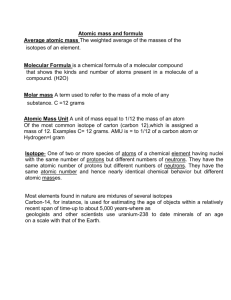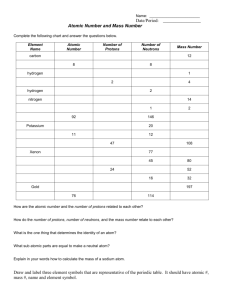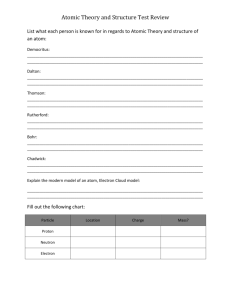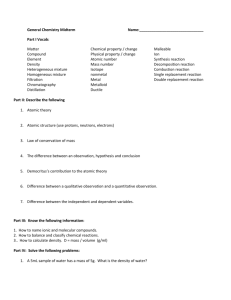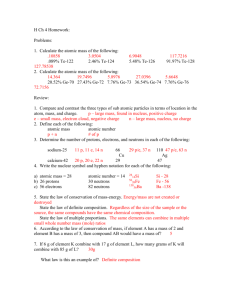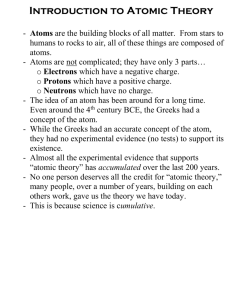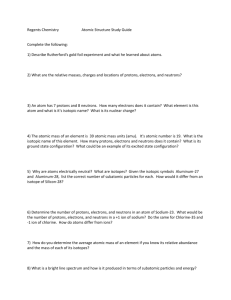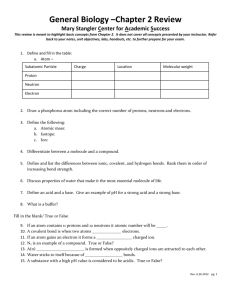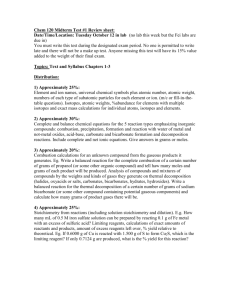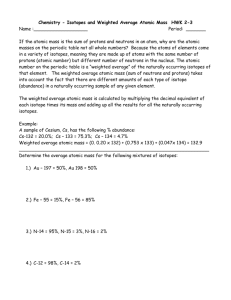H CH 4 Homework
advertisement
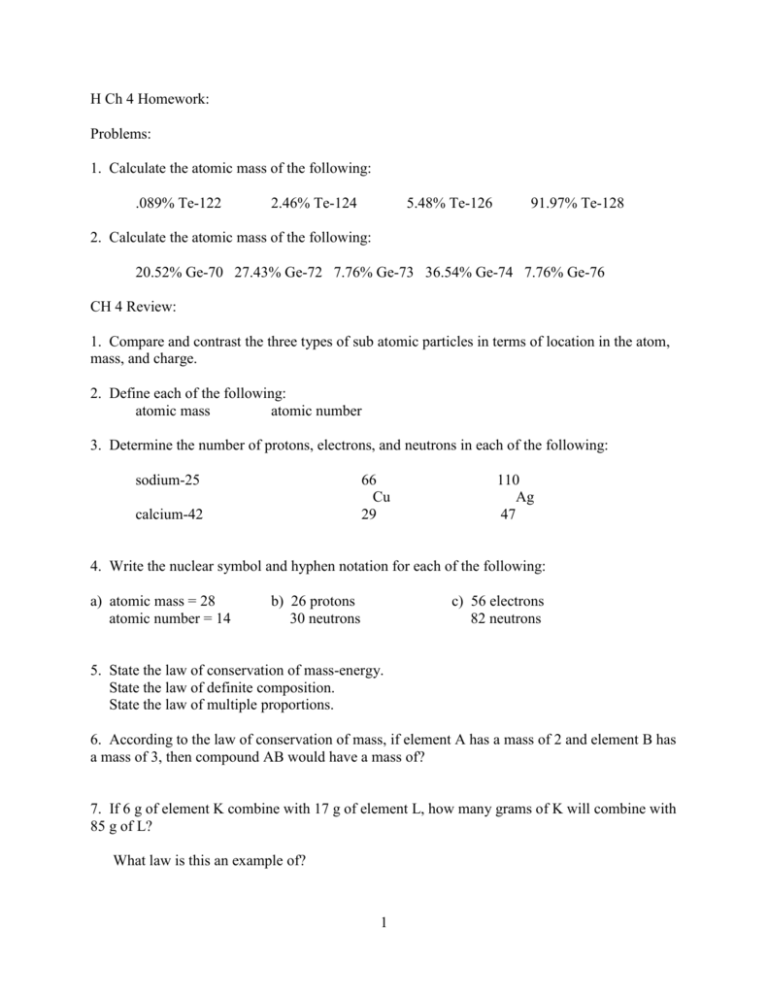
H Ch 4 Homework: Problems: 1. Calculate the atomic mass of the following: .089% Te-122 2.46% Te-124 5.48% Te-126 91.97% Te-128 2. Calculate the atomic mass of the following: 20.52% Ge-70 27.43% Ge-72 7.76% Ge-73 36.54% Ge-74 7.76% Ge-76 CH 4 Review: 1. Compare and contrast the three types of sub atomic particles in terms of location in the atom, mass, and charge. 2. Define each of the following: atomic mass atomic number 3. Determine the number of protons, electrons, and neutrons in each of the following: sodium-25 66 Cu 29 calcium-42 110 Ag 47 4. Write the nuclear symbol and hyphen notation for each of the following: a) atomic mass = 28 atomic number = 14 b) 26 protons 30 neutrons c) 56 electrons 82 neutrons 5. State the law of conservation of mass-energy. State the law of definite composition. State the law of multiple proportions. 6. According to the law of conservation of mass, if element A has a mass of 2 and element B has a mass of 3, then compound AB would have a mass of? 7. If 6 g of element K combine with 17 g of element L, how many grams of K will combine with 85 g of L? What law is this an example of? 1 8. If 60 g of X combine with 10 g of Y to form the compound XY, how many grams of Y will be needed to combine with the same amount of X to form the compound XY2? What law is this an example of? 9. What one factor determines the identity of an atom. 10. What are isotopes? 11. How are the isotopes of a particular element alike? How are they different? 12. Explain how the electron was discovered. 13. Explain Rutherford’s experiment that led to the discovery of the nucleus. 2
